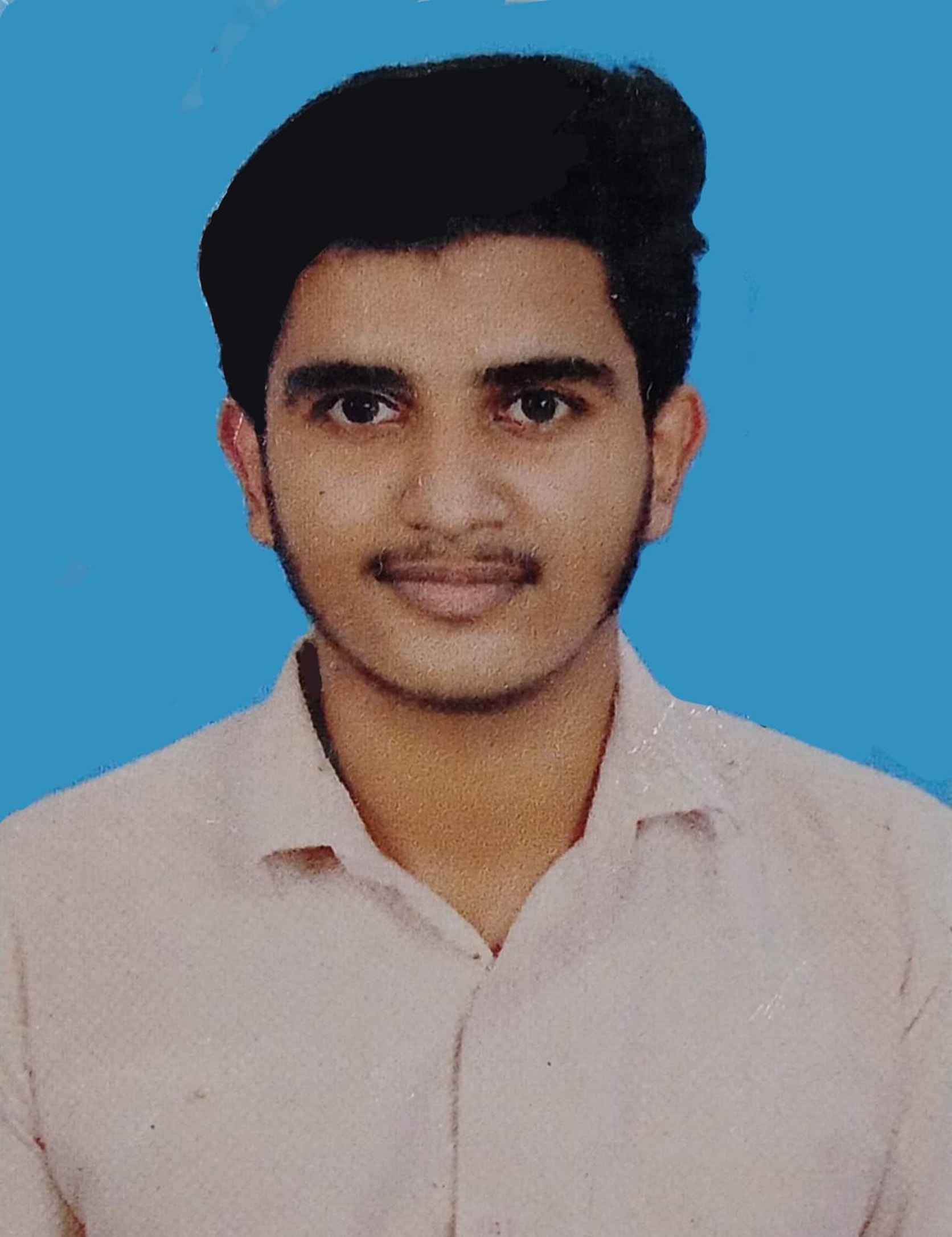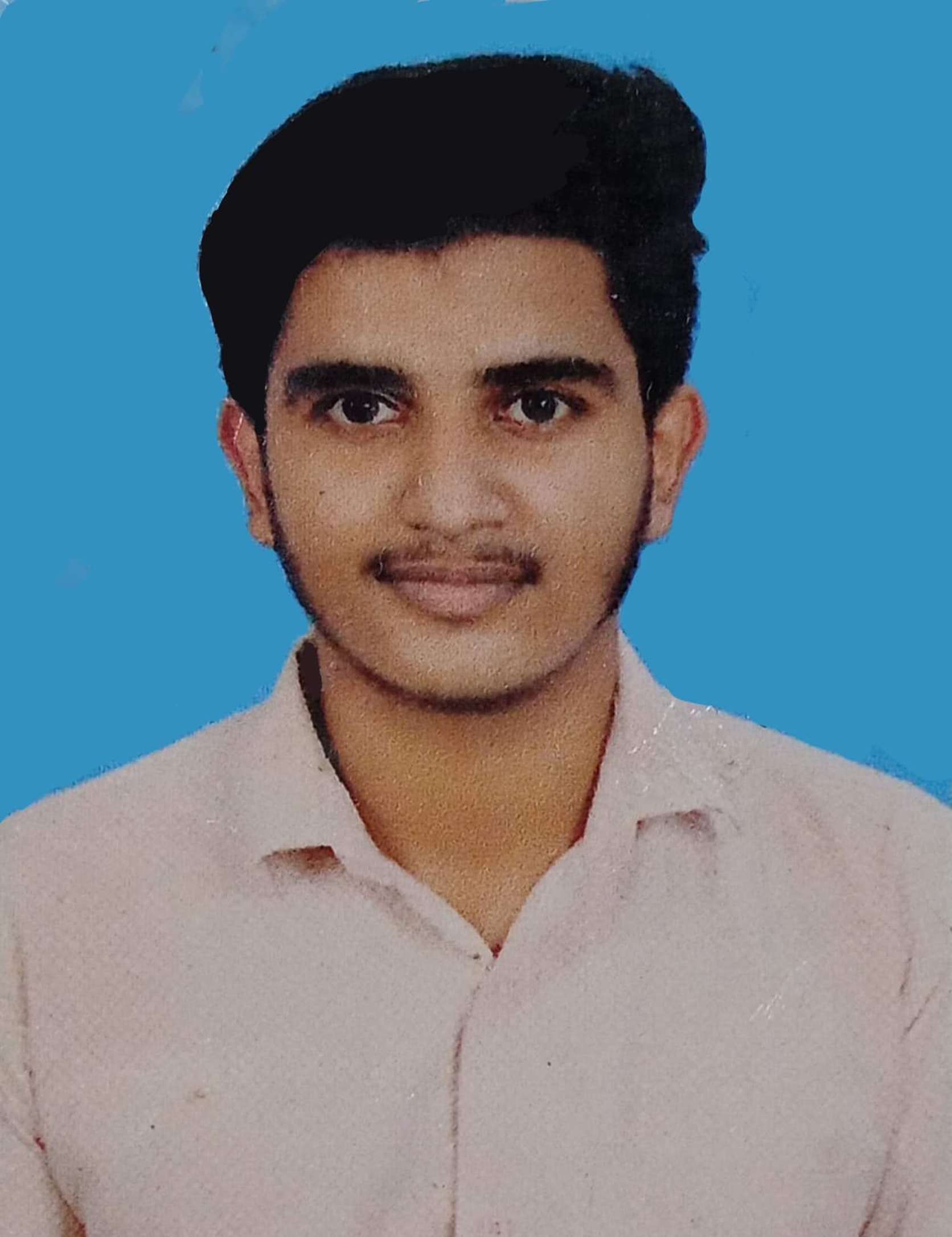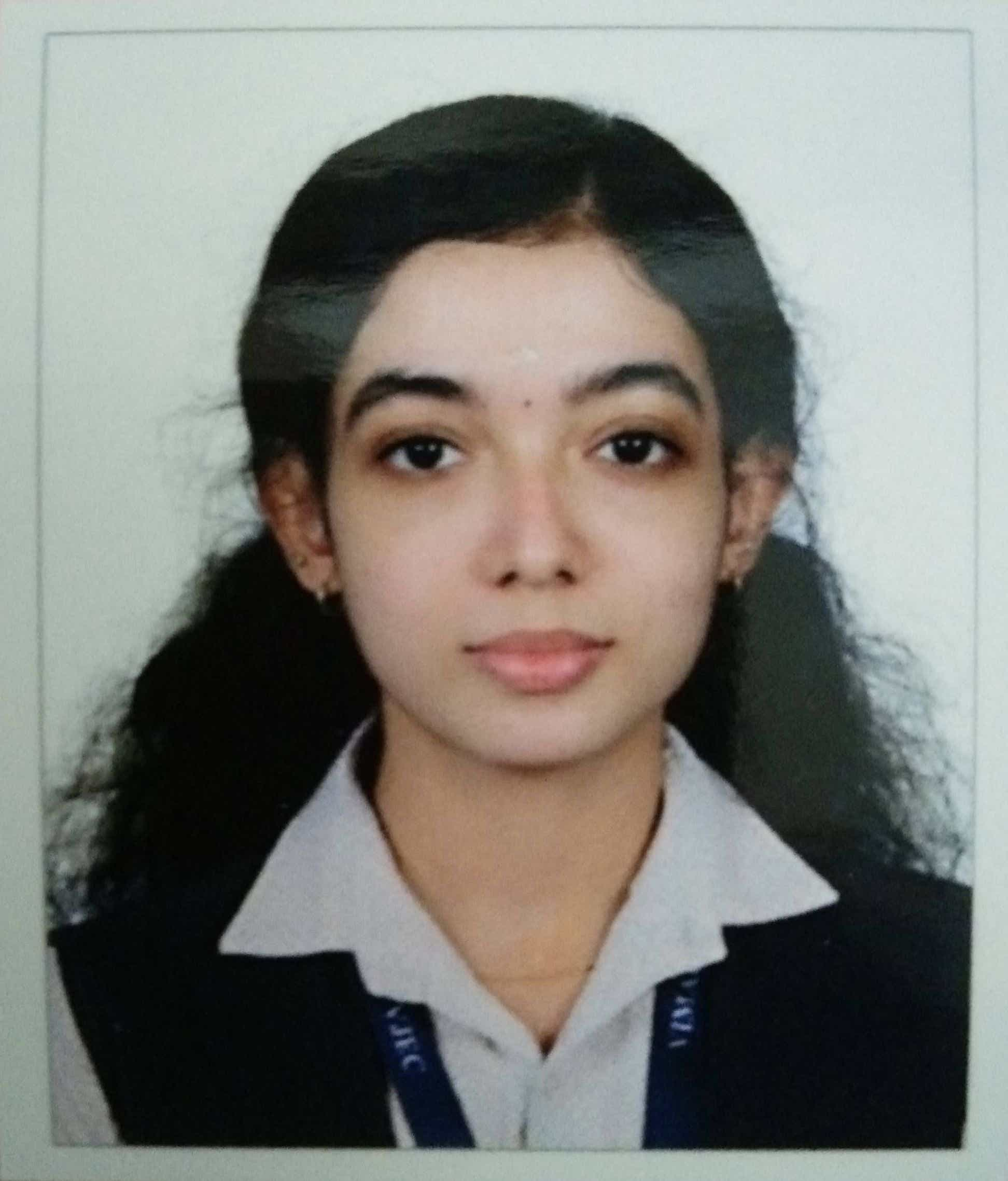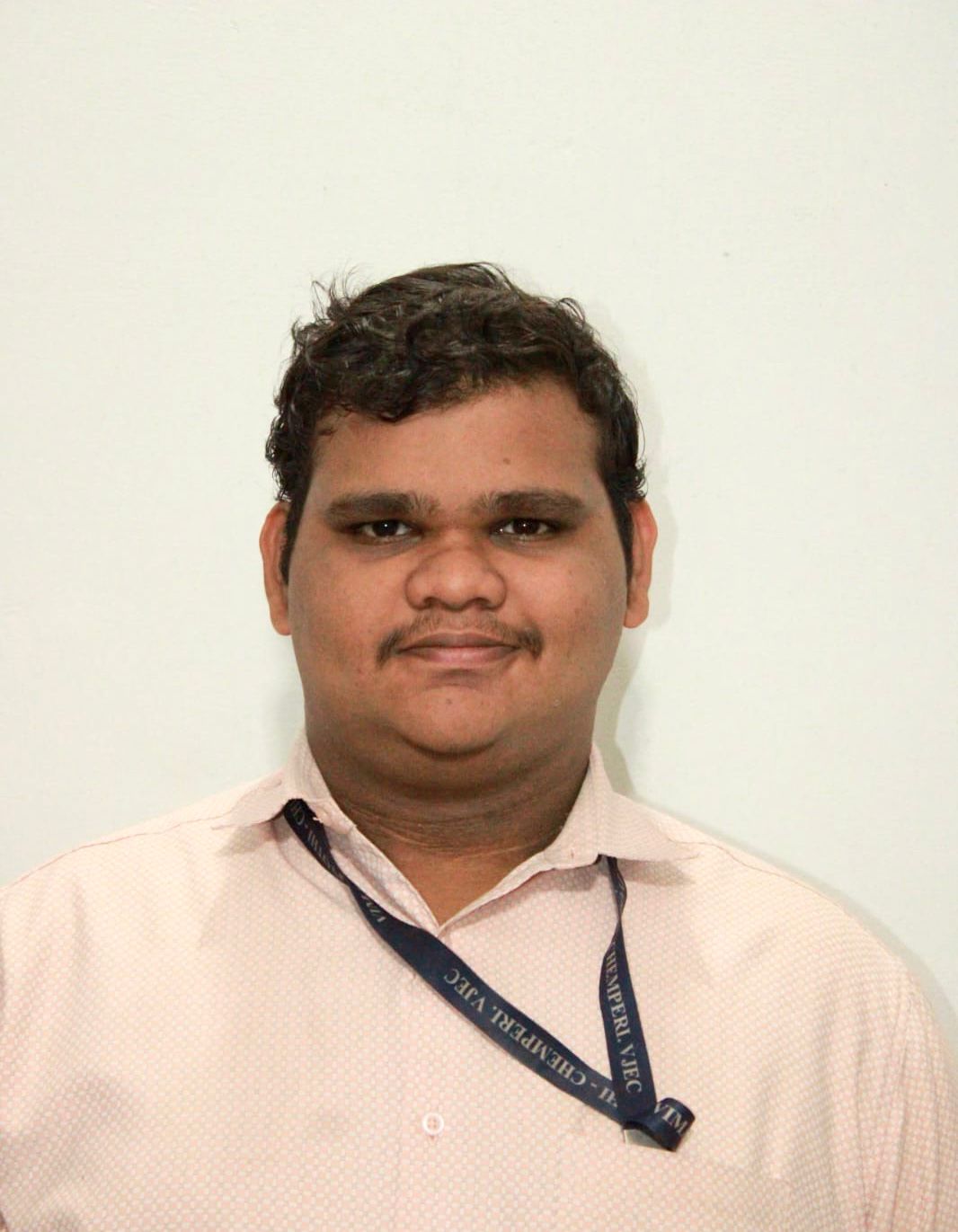Placements
Martin Reju
6D Technologies
Ajaynath P
Al-Nakheel Electronics
Jishnu Prakash K K
FACE Prep
- Department of Electronics and Communication Engineering was established in 2002 with an intake of 60 students in B.Tech programme. The Department is Accredited by National Board of Accreditation (NBA).
- The department is an approved research centre under KTU. Department of ECE provides quality education for the students in the field of Electronics and Communication Engineering.
- The department is committed to educate students about professional and ethical responsibilities and train them to build life skills for their career development.
- With excellent infrastructure, laboratories and full-fledged faculty, the department has always been in the path of rapid progress, making it one of the premier departments of Vimal Jyothi Engineering College.
18June 2025
News Letter -ECE-June 2025
News Letter -ECE-April 2025
08Apr 2025
News Letter -ECE-April 2025
Nexus
05Feb 2025
News Letter -ECE-February 2025
Nexus
07Oct 2024
News Letter -ECE-October 2024
Nexus
12Aug 2024
News Letter -ECE-August2024
Nexus
11June 2024
News Letter -ECE-June 2024
Nexus
08Apr 2024
News Letter -ECE-April 2024
Nexus
06Feb 2024
News Letter -ECE-February 2024
Nexus
08Aug 2023
News Letter -ECE-August 2023
News Letter -ECE-August 2023
13June 2023
News Letter -ECE-June 2023
Nexus
| Department Location |
VISVESVARAYA BLOCK |
| Head of Department |
Dr. Anusha Chacko (B.Tech, M.Tech,, Ph.D) |
| Address for communication |
Associate Professor & Head of Department Department of ECE,
Vimal Jyothi Engineering College,
Chemperi Post,
Kannur Dist-670632,
Kerala, India
|
| Email-ID |
[email protected] |
| Telephone number |
9495151099
|
| UG Program |
B.Tech in Electronics and Communication Engineering - (Intake 60)
|
Vision
To be a pacesetter in the field of Electronics and Communication Engineering.
Mission
- M1: To provide quality education for the students in the field of Electronics and Communication Engineering.
- M2:
To educate students about professional and ethical responsibilities and train them to build life skills for their career development.
Long Term Goals
Computer Science Engineering
- To become globally recognized center of excellence in the field of Electronics & Communication Engineering field.
- To achieve 100% results.
- To achieve 100% Placement with at least 50% placements in core companies.
Short Term Goals
- To start more P.G programs in the department of Electronics and communication Engineering in the field of Nano-electronics and Microwave engineering
- To undertake research and development works in leading technologies by forging alliances with various research organizations and industry.
- To encourage faculty to take up at least one R & D and consultancy works.
- To encourage at least 40% of faculty members to do Ph.D. program.
- To conduct international conference on emerging trends in electronics with indexed journal publication.
Knowledge and Attitude Profile (WK)
- WK1: A systematic, theory-based understanding of the natural sciences applicable to the discipline and awareness of relevant social sciences.
- WK2: Conceptually-based mathematics, numerical analysis, data analysis, statistics and formal aspects of computer and information science to support detailed analysis and modelling applicable to the discipline.
- WK3: A systematic, theory-based formulation of engineering fundamentals required in the engineering discipline.
- WK4: Engineering specialist knowledge that provides theoretical frameworks and bodies of knowledge for the accepted practice areas in the engineering discipline; much is at the forefront of the discipline.
- WK5: Knowledge, including efficient resource use, environmental impacts, whole-life cost,re-use of resources, net zero carbon, and similar concepts, that supports engineering design and operations in a practice area.
- WK6: Knowledge of engineering practice (technology) in the practice areas in the engineering discipline.
- WK7: Knowledge of the role of engineering in society and identified issues in engineering practice in the discipline, such as the professional responsibility of an engineer to public safety and sustainable development.
- WK8: Engagement with selected knowledge in the current research literature of the discipline,
awareness of the power of critical thinking and creative approaches to evaluate
emerging issues.
- WK9: Ethics, inclusive behavior and conduct. Knowledge of professional ethics,
responsibilities, and norms of engineering practice. Awareness of the need for diversity
by reason of ethnicity, gender, age, physical ability etc. with mutual understanding
and respect, and of inclusive attitudes.
Program Outcomes (POs)
- PO1: Engineering Knowledge: Apply knowledge of mathematics, natural science,
computing, engineering fundamentals and an engineering specialization as specified in WK1 to WK4 respectively to develop to the solution of complex engineering problems.
- PO2: Problem Analysis: Identify, formulate, review research literature and analyze
complex engineering problems reaching substantiated conclusions with consideration for sustainable development. (WK1 to WK4).
- PO3: Design/Development of Solutions: Design creative solutions for complex
engineering problems and design/develop systems/components/processes to meet
identified needs with consideration for the public health and safety, whole-life cost,
net zero carbon, culture, society and environment as required. (WK5).
- PO4: Conduct Investigations of Complex Problems: Conduct investigations of complex engineering problems using research-based knowledge including design of experiments, modelling, analysis & interpretation of data to provide valid conclusions.(WK8).
- PO5: Engineering Tool Usage: Create, select and apply appropriate techniques, resources and modern engineering & IT tools, including prediction and modelling recognizing their limitations to solve complex engineering problems. (WK2 and WK6).
- PO6: The Engineer and The World: Analyze and evaluate societal and environmental aspects while solving complex engineering problems for its impact on sustainability with reference to economy, health, safety, legal framework, culture and environment. (WK1, WK5, and WK7).
- PO7: Ethics: Apply ethical principles and commit to professional ethics, human values, diversity and inclusion; adhere to national & international laws. (WK9).
- PO8: Individual and Collaborative Team work: Function effectively as an individual, and as a member or leader in diverse/multi-disciplinary teams.
- PO9: Communication: Communicate effectively and inclusively within the engineering community and society at large, such as being able to comprehend and write effective reports and design documentation, make effective presentations considering cultural, language, and learning differences
- PO10: Project Management and Finance: Apply knowledge and understanding of
engineering management principles and economic decision-making and apply these to one’s own work, as a member and leader in a team, and to manage projects and in multidisciplinary environments.
- PO11: Life-Long Learning: Recognize the need for, and have the preparation and ability for i) independent and life-long learning ii) adaptability to new and emerging technologies and iii) critical thinking in the broadest context of technological change. (WK8).
PSOs
- An ability to
Use computer aided tools to provide solutions to Electronics &Communication related problems.
- Develop and implement a process in a well-planned manner leading to a demonstrable product.
PEOs
- Graduates will have successful career in the field of Electronics and Communication Engineering and allied sectors.
- Graduates will have the ability to pursue higher studies and research.
- Graduates will demonstrate entrepreneurial skills to develop innovative products and services.
- Graduates will adapt to different roles in global working environment by respecting diversity and professional ethics.
Course Outcomes (COs)
View
Applied Electronics & Instrumentation Engineering
Artificial Intelligence and Data Science
Civil Engineering
Computer Science and Engineering and Business Systems
Computer Science and Engineering (Cyber Security)
Computer Science and Engineering
Computer Science & Design
Electronics & Communication Engineering
Electrical & Electronics Engineering
Mechanical Engineering








